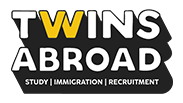Crafting a CV That Attracts Recruiters in the Study Abroad Landscape
In the increasingly competitive global job market, a compelling CV can make all the difference between landing an interview or being overlooked. For Indian students studying abroad, crafting a CV that resonates with international recruiters requires more than just listing qualifications—it demands strategy, clarity, and an understanding of global expectations. In this blog, we delve deep into how Indian students can create CVs that stand out and align with the requirements of the international job market.
Understanding the Global CV Standard
CVs vary in format and content across different countries. While Indian CVs often include personal details such as date of birth, marital status, or even a photo, most Western countries recommend a more streamlined and professional layout. For example, in the U.S., CVs are succinct (often one page for recent graduates), focus heavily on results, and avoid personal information due to anti-discrimination laws. In contrast, European CVs—especially in countries like Germany or France—may be more detailed and sometimes include a photograph.
Understanding these distinctions is crucial. Before applying, research the local CV norms in your target country and tailor your CV accordingly. Resources like the Europass CV in Europe or resume guidelines provided by university career centers abroad are immensely helpful.
Highlighting Educational Experience Effectively
Indian students abroad often pursue high-quality education at globally ranked institutions. Your academic experience can be your strongest asset, especially as a recent graduate. Begin your CV with a strong education section, mentioning your degree, university name, location, duration, and key modules or projects that reflect your career interest.
If you have pursued research or coursework relevant to your job interest, mention it in detail. For example, an engineering student could highlight a capstone project involving real-world applications or collaboration with a local industry partner. Academic achievements, GPA (if impressive), scholarships, or honors should not be overlooked.
Integrating Global Internships and Work Experience
Studying abroad often opens doors to internships or part-time jobs in diverse settings. These experiences are invaluable. When listing them, focus on the skills acquired and the impact made. Instead of simply stating your job responsibilities, describe how your contributions benefited the company or project.
Also, emphasize multicultural teamwork, language skills, and adaptability—qualities international employers value highly.
Tailoring the CV to the Job Role
A common mistake many students make is using the same CV for every application. Recruiters appreciate candidates who understand the job role and tailor their application accordingly. This means modifying the objective or summary statement, selecting relevant experiences to emphasize, and reordering skills based on what the job description prioritizes.
Use keywords from the job listing. Many companies use Applicant Tracking Systems (ATS) to scan CVs. Incorporating the right terminology increases the likelihood of your CV passing through these automated filters.
Showcasing Soft Skills and Cross-Cultural Competencies
Indian students studying abroad often gain soft skills that are highly sought after—communication, cultural sensitivity, resilience, and independence. These qualities should be subtly highlighted across different CV sections.
You can weave soft skills into descriptions of academic projects, volunteer experiences, or international collaborations. For example, managing a team project with students from five different nationalities demonstrates teamwork and cultural intelligence—both attractive to global employers.
Including Volunteering, Leadership, and Extracurricular Activities
Recruiters want to hire well-rounded individuals. If you’ve taken on leadership roles in university clubs, volunteered for community service, or participated in intercultural exchange programs, be sure to include them.
These experiences show that you’re proactive, socially responsible, and can manage time efficiently. They also offer insight into your personality and passions, which can be an edge in sectors like education, development, or creative industries.
Structuring Your CV for Clarity and Impact
The structure of your CV affects readability. Use a clean, professional layout with clear headings, bullet points (for experiences and skills), and consistent formatting. Choose fonts like Arial or Calibri, and keep font size between 10-12 pt.
Here’s a basic structure that works across most global contexts:
- Contact Information (name, email, phone, LinkedIn)
- Professional Summary or Objective (2–3 lines tailored to job)
- Education
- Work Experience
- Skills (technical and soft skills)
- Certifications / Courses
- Volunteer Work / Extracurricular Activities
- Languages (especially useful in multicultural job markets)
Avoid cluttering your CV. White space, consistent formatting, and a chronological or hybrid layout ensure easy scanning by both humans and machines.
Leveraging Technology and CV Tools
There are many tools that help optimize your CV. Platforms like Zety, Novoresume, or Canva offer professional CV templates. Some even offer AI-powered suggestions to improve phrasing or structure.
For grammar and clarity, tools like Grammarly can help you refine the language. LinkedIn’s Resume Builder is also a great feature for converting your profile into a CV format, especially for those active on the platform.
Addressing Gaps and Overcoming Lack of Experience
If you lack formal work experience, focus on transferable skills and academic projects. Highlight leadership in group assignments, roles in student unions, or self-initiated ventures. If there’s a gap due to personal reasons or shifting countries, explain it briefly and positively in your cover letter.
Recruiters value honesty and growth. Showing that you utilized your time for skill development or volunteering can turn a gap into a strength.
Building a Digital Presence Alongside Your CV
In the modern job market, a CV is often accompanied by your online presence. Recruiters frequently check LinkedIn profiles and personal portfolios.
Make sure your LinkedIn matches your CV and includes recommendations, endorsements, and a professional photo. If you’re in creative or tech fields, linking to a portfolio site (e.g., GitHub, Behance, or personal blogs) can make a strong impression.
Final Touches: Proofreading and Peer Reviews
Always proofread your CV multiple times. A single typo can make a poor impression. Ask friends, mentors, or university career advisors to review it. Fresh perspectives can offer insights on improving clarity or presentation.
Some universities abroad offer CV clinics or mock interviews. Make use of them. They provide constructive feedback aligned with employer expectations in that region.


Leave a Reply